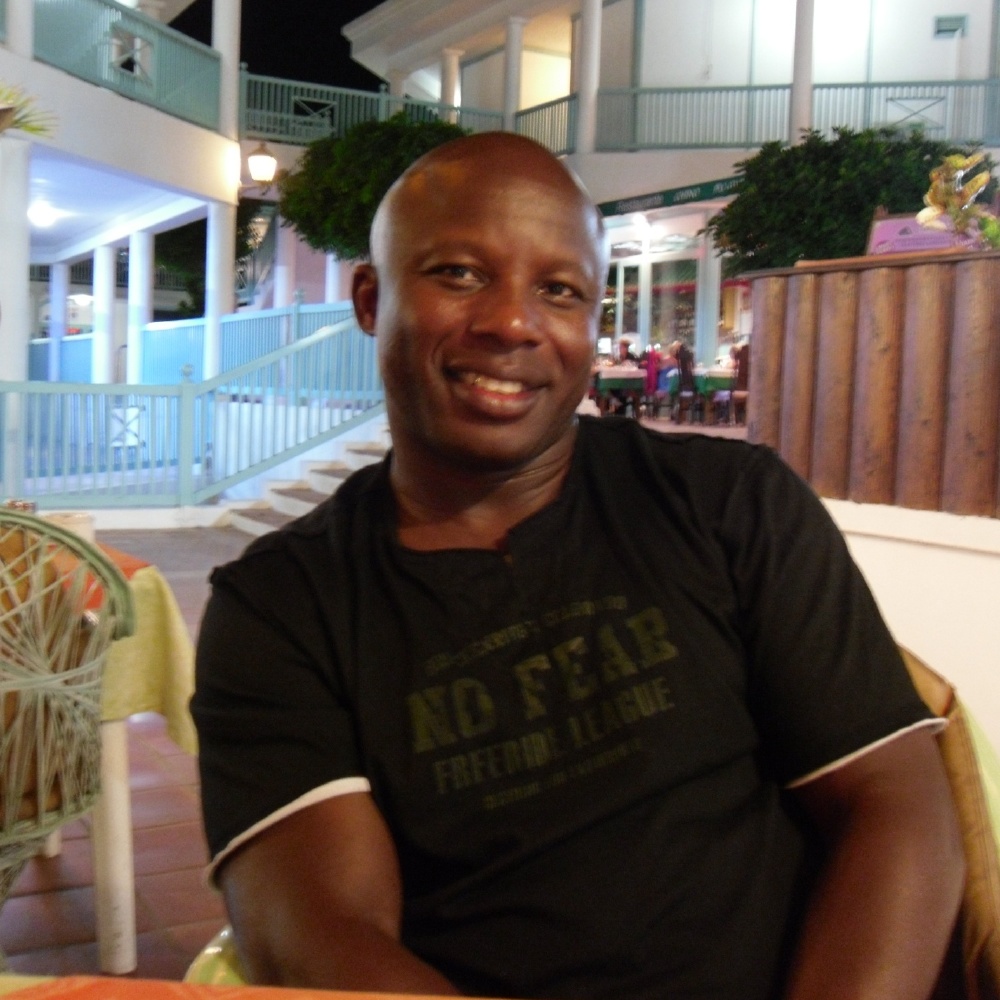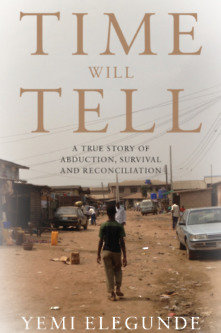
Yemi Elegunde

Time Will Tell covers a pivotal period of my life and hopefully gives the audience a very different perspective into the issue of International Parental Abduction which is when one parent takes their child or children away from their home to live in another country without the knowledge or consent of the other parent.
The UK Foreign Office and charities like Reunite International usually deal with the left behind parent, offering them advice and mediation. Time Will Tell on the other hand tells the story first-hand from the eyes and experiences of the child.
My sister and I were taken from England to Nigeria in 1973 by my dad when we were five and seven years old respectively; we lived in Nigeria for a total of 14 years. Back then, there was very little awareness of International Parental Child Abduction across borders. I returned to England as a 22-year-old man in 1988.
What are your memories of when you were first abducted?
I do remember my dad coming back home to take me and my sister out for the day. I don’t remember boarding any planes, but I remember looking around in awe as we walked through a village in Lagos towards my Uncles’ house.
It took quite a while for the realisation that we were not going back home to sink in. I would find a quiet place to cry where no one could bother me. I was confused and frustrated and I refused to learn the language or accept my new family in those early days.
We went to boarding school within a few weeks of arriving in Nigeria so there were so many changes that we needed to adapt to in such a short period of time.
When you realised that you were not going to see your mum, what sort of things do you say to her in your letters?
I didn’t really realise that I wasn’t going to see my mum for so many years; I knew that we lived in Nigeria now, but nothing seemed to make sense. I started by writing to my mum telling her how much I missed her and how sad I was, I reassured her that I was alright and how much I wanted to come back home. Then I started asking her about my old school and friends in England. I wrote to tell her how I was settling into life in Nigeria and I would always let her know when we moved from one school to another which happened quite often in the first couple of years.
As time went by I became more frustrated and angry and I would tell my mum how I didn’t need her anymore, how I was becoming a man and how angry I was that she hadn’t come to visit us.
How did you adapt to such a sudden change of lifestyle?
It became clear very quickly that I had no choice but to adapt. There were so many changes; the heat, the mosquitoes, the language, the food and so on. I wanted to be left alone as much as possible, so I had to learn to become independent; I had to learn how to hand-wash my own clothes, fetch water from a well by balancing on the edge of the well whilst pulling up a bucket of water – the wells were nothing like the pictures I had seen in the ‘Jack & Jill’ nursery rhyme books’. I had to learn how to cut grass with a cutlass; I had to learn how to carry an aluminium bucket of water from the stream which was at least a mile away from the boys’ dormitory at school by balancing it on my head. I also learned how to use a pit-latrine and clean myself up afterwards with water instead of toilet roll. Nearly every aspect of my life was changing and I had no choice but to learn very quickly.
In your voyage of self-discovery, what was your biggest personal change?
My biggest personal change was learning to stop being angry and rebellious. I started to appreciate life a lot more and especially the life and lessons I had lived. It helped me to grow into a very happy person.
At what point and why did you decide to tell your story?
It never occurred to me that my story was worth sharing, but quite often while chatting with friends, colleagues or even strangers, the topic of my sister and me having been smuggled away to Nigeria while we were kids would crop up. I would have to elaborate on this topic a little more and my audience would always be intrigued. Time after time, the same suggestion would come up. "You should write about this," they would say and I would reply “Yes, maybe one day.”
In April 2004 I visited my dad in Nigeria, and then in October of that same year I visited my mum in Jamaica. On the flight back from Jamaica it occurred to me that that year was the first time I had seen both my parents in the same year since 1973. That was the final trigger for me so in 2005 I began to write my memoirs.
What do you hope to achieve by writing this book?
Every other day a British child is abducted by a parent to a country that has not signed the Hague Convention on international child abduction according to research released by the United Kingdom Foreign and Commonwealth Office (FCO) in 2011. Time Will Tell opened my eyes to the extent of the issue of International Parental Child Abduction and I hope it can help some of the many parents, charity organisations, mitigation solicitors and government agencies in their efforts.
One of my key messages is forgiveness and reconciliation. Nothing has given me more pleasure than being able to reconcile with both my parents.
As a very personal character, it has been strange but very worthwhile telling the story of this period of my life and I hope that readers might enjoy it as much as I enjoyed the therapeutic feeling I got from writing this book.
What is next for you?
I would like to go on to be recognised as an expert on the subject of Parental Child Abduction and help raise awareness of the issue. More importantly there is a need to help the children caught up in the parental feud; they are never too young to be scarred, as I learned, and I would like to help those innocent victims as much as I can.

